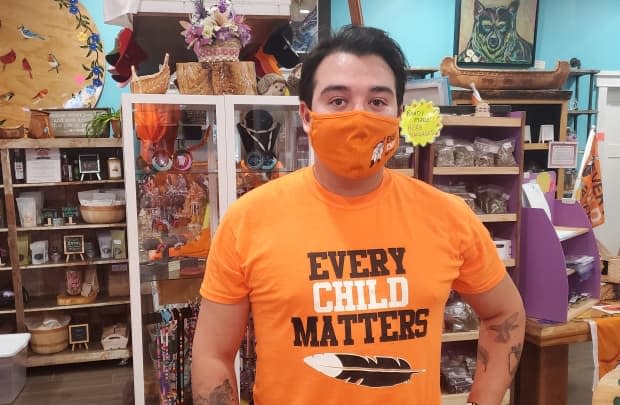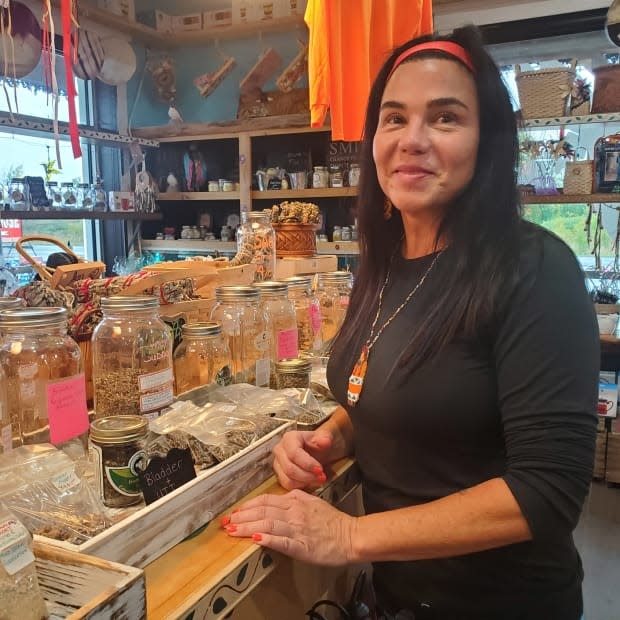How Quebec communities are marking the National Day for Truth and Reconciliation

On the first National Day for Truth and Reconciliation, Jean-Claude Therrien Pinette says his thoughts will be with his mother.
Therrien Pinette's mother was one of thousands of Indigenous children who endured Canada's residential school system.
"I think that they broke my mom," he said. "I only realized when she passed away a few years later, when I was 28."
In June, the federal government announced that Sept. 30 would mark the first annual day for National Truth and Reconciliation — to coincide with Orange Shirt Day. Most banks will be closed.
But provinces, including Quebec, have yet to pass legislation that would make Sept. 30 a statutory holiday at the provincial level.
Many, like Therrien Pinette, are taking it upon themselves to organize events in their communities to reflect on their personal roles in settler colonialism and the violence Indigenous people face.
This Thursday, Montrealers can honour the children found in unmarked graves by attending a commemorative ceremony and march starts at Place du Canada at 1 p.m. and ends at Place des Arts.
Organized by the Native Women's Shelter and the Assembly of First Nations Quebec-Labrador, the event will feature Indigenous leaders, rights defenders and youth from Quebec and Labrador communities.
Marchers are encouraged to wear orange and bring drums to the ceremony.
'A survivor from a survivor'
In the Innu community of Uashat mak Mani-Utenam, on the province's North Shore, Therrien Pinette will help oversee the all-day event.
Community members will participate in a sunrise ceremony and light a sacred fire before taking part in a traditional dance performance. Children will also be able to meet and hear from residential school survivors.
Therrien Pinette says the residential school near Uashat mak Mani-Utenam was active from 1952 to 1967.
"I'm a survivor from a survivor," he said. "We know the intergenerational impact and I think that my biggest win as a survivor is that I was able not to pass the problem to my children."
While the day won't be observed in the province officially, Therrien Pinette says this year should focus on introspection.
"Canadians, right now, need to think about their own history," Therrien Pinette said. "But internally, inside our community, we [need] to think about ourselves, and what we have done after [that] trauma."
Orange represents a time of paying homage
Finding orange shirts in time for Thursday isn't easy. So, the owner of The Purple Dragonfly Trading Post is making and selling her own.
"The colour orange represents a time of paying homage, paying respect to the acknowledgement of what happened in residential schools," said Leah Diome.

The shop is in Kahnawake, southwest of Montreal. Along with T-shirts and hoodies, the shop is also selling various other awareness products such as flags, masks and bumper stickers.
"Thank you for being a conscientious consumer and wanting to support Indigenous initiatives, local programming, promote awareness and build bridges," the shop says on its Facebook page.
In Kanesatake, a Mohawk community northwest of Montreal, a walk is being planned for the children who never came home from residential schools.
"It might not be the same length as what some children had to endure when they ran away and went home but it's something," said Stacy Pepin, a Mohawk beader from Kanesatake.
"It's a togetherness for us to do this."

 Yahoo Movies
Yahoo Movies 